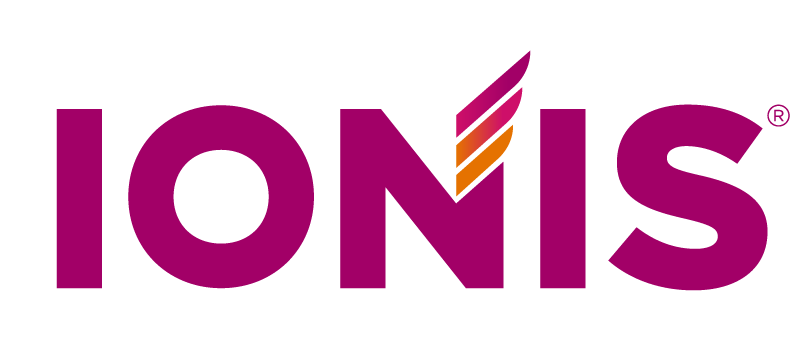Press Releases
Isis Pharmaceuticals Initiates Phase I Study of Second-Generation Antisense Drug for Cardiovascular Disease
CARLSBAD, Calif., Dec. 29 /PRNewswire-FirstCall/ -- Isis Pharmaceuticals, Inc. (Nasdaq: ISIS) announced today it has initiated a Phase I study of ISIS 301012, a second-generation antisense inhibitor of ApoB-100, for cardiovascular disease. ApoB-100 is the carrier of low density lipid (LDL) cholesterol, the "bad" lipid involved in heart disease. This target has been of interest to the pharmaceutical industry for many years, but has been considered "undruggable" by traditional approaches.
"We are enthusiastic about the potential of this compound to offer a new treatment option for patients whose cholesterol levels are not safely or effectively managed with current drugs, " said Mark Wedel, M.D., Vice President, Clinical Research and Chief Medical Officer. "In preclinical studies, ISIS 301012 decreased cholesterol safely in numerous well-recognized animal models of cardiovascular disease. Further, ApoB-100 protein and messenger RNA levels decreased in the drug treated animals. These results are consistent with an antisense mechanism of action and provide us with an early read that the drug is performing as we expected."
The double-blind, placebo-controlled, dose-escalation trial will enroll 40 healthy volunteers with elevated cholesterol. The goal of this Phase I study is to assess the safety, tolerability and pharmacokinetic profile of ISIS 301012, and its ability to reduce several components of cholesterol that are important in the management and prevention of cardiovascular disease.
Lowering cholesterol levels is a key component in the management of heart disease. After six weeks of treatment in animal models, ISIS 301012 produced a dose-dependent reduction in all components of cholesterol commonly used in evaluating heart disease. More specifically, the second-generation antisense drug produced a 50% reduction in total cholesterol, a 15% reduction in very-low density lipoprotein (VLDL) and an 88% decrease in LDL. Significant reductions in triglyceride levels were also observed and no meaningful adverse events were observed.
As part of the company's new cardiovascular drug discovery program, Isis scientists rapidly explored more than 20 cardiovascular gene targets in vitro and evaluated many of these genes in animal models to identify the most attractive candidate to move into development. ISIS 301012 emerged from these studies and is the first drug to enter the clinic from this program. Isis scientists continue to advance additional potent and highly specific cholesterol-lowering drugs as potential candidates for clinical study.
Antisense drugs, such as ISIS 301012, work at the molecular level by binding to messenger RNA to interrupt the process by which disease-related proteins are produced. Antisense drugs are uniquely suited to inhibit ApoB-100 because of the way they work and because the target resides in fat tissue, a tissue which can be more difficult for conventional drugs to access.
Cardiovascular disease is the leading cause of death in the U.S., according to the National Institutes of Health. Researchers have shown a strong correlation between high cholesterol levels and subsequent cardiovascular diseases. Statistics from the American Heart Association show more than 100 million American adults have high cholesterol levels.
Isis Pharmaceuticals, Inc., is exploiting its expertise in RNA to discover and develop novel human therapeutic drugs. The company has successfully commercialized the world's first antisense product, and has 11 antisense products in development. In the company's GeneTrove™ program, Isis uses antisense technology as a tool to determine the function of genes and uses that information to direct the company's internal drug discovery research and that of its corporate partners. Through its Ibis Therapeutics™ program, Isis is developing a novel diagnostic tool to detect infectious organisms and is focused on the discovery of small molecule drugs that bind to RNA. As an innovator in RNA-based drug discovery and development, Isis is the owner or exclusive licensee of more than 1,300 issued patents worldwide. Additional information about Isis is available at www.isispharm.com.
This press release contains forward-looking statements concerning the development and therapeutic potential and safety of ISIS 301012. Any statement describing a goal, expectation, intention or belief of the company is a forward-looking statement and should be considered an at-risk statement. Such statements are subject to certain risks and uncertainties, particularly those inherent in the process of discovering, developing and commercializing drugs that are safe and effective for use as human therapeutics and financing such activities. Actual results could differ materially from those projected in this release. As a result, you are cautioned not to rely on these forward-looking statements. These and other risks concerning Isis' research and development programs are described in additional detail on Form 10-Q for the period ended September 30, 2003, which is on file with the U.S. Securities and Exchange Commission, copies of which are available from the company.
GeneTrove™ and Ibis Therapeutics™ are trademarks of Isis Pharmaceuticals, Inc.
SOURCE Isis Pharmaceuticals, Inc.
